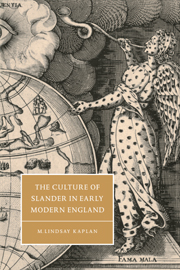18 results
11 - The Merchant of Venice, Jews, and Christians
-
-
- Book:
- The Cambridge Companion to Shakespeare and Religion
- Published online:
- 12 April 2019
- Print publication:
- 28 March 2019, pp 168-183
-
- Chapter
- Export citation
Who Drew the Jew that Shakespeare Knew? Misericords and Medieval Jews inThe Merchant of Venice
-
-
- Book:
- Shakespeare Survey
- Published online:
- 05 December 2013
- Print publication:
- 07 November 2013, pp 298-315
-
- Chapter
- Export citation
Contributors
-
-
- Book:
- Shakespeare Survey
- Published online:
- 05 December 2013
- Print publication:
- 07 November 2013, pp vi-vi
-
- Chapter
- Export citation
Janet Adelman. Blood Relations: Christian and Jew in The Merchant of Venice. Chicago: The University of Chicago Press, 2008. xii + 226 pp. index. bibl. $35. ISBN: 978–0–226–00681–9.
-
- Journal:
- Renaissance Quarterly / Volume 61 / Issue 4 / Winter 2008
- Published online by Cambridge University Press:
- 20 November 2018, pp. 1422-1423
- Print publication:
- Winter 2008
-
- Article
- Export citation
2 - Allegories of defamation in The Faerie Queene Books iv–vi
-
- Book:
- The Culture of Slander in Early Modern England
- Published online:
- 03 December 2009
- Print publication:
- 13 October 1997, pp 34-63
-
- Chapter
- Export citation
Cambridge Studies in Renaissance Literature and Culture
-
- Book:
- The Culture of Slander in Early Modern England
- Published online:
- 03 December 2009
- Print publication:
- 13 October 1997, pp 149-150
-
- Chapter
- Export citation
Contents
-
- Book:
- The Culture of Slander in Early Modern England
- Published online:
- 03 December 2009
- Print publication:
- 13 October 1997, pp ix-x
-
- Chapter
- Export citation
4 - Slander for slander in Measure for Measure
-
- Book:
- The Culture of Slander in Early Modern England
- Published online:
- 03 December 2009
- Print publication:
- 13 October 1997, pp 92-108
-
- Chapter
- Export citation
Index
-
- Book:
- The Culture of Slander in Early Modern England
- Published online:
- 03 December 2009
- Print publication:
- 13 October 1997, pp 144-148
-
- Chapter
- Export citation
Frontmatter
-
- Book:
- The Culture of Slander in Early Modern England
- Published online:
- 03 December 2009
- Print publication:
- 13 October 1997, pp i-viii
-
- Chapter
- Export citation

The Culture of Slander in Early Modern England
-
- Published online:
- 03 December 2009
- Print publication:
- 13 October 1997
Introduction: censorship versus slander
-
- Book:
- The Culture of Slander in Early Modern England
- Published online:
- 03 December 2009
- Print publication:
- 13 October 1997, pp 1-11
-
- Chapter
- Export citation
Works cited
-
- Book:
- The Culture of Slander in Early Modern England
- Published online:
- 03 December 2009
- Print publication:
- 13 October 1997, pp 138-143
-
- Chapter
- Export citation
3 - Satire and the arraignment of the Poetaster
-
- Book:
- The Culture of Slander in Early Modern England
- Published online:
- 03 December 2009
- Print publication:
- 13 October 1997, pp 64-91
-
- Chapter
- Export citation
Acknowledgments
-
- Book:
- The Culture of Slander in Early Modern England
- Published online:
- 03 December 2009
- Print publication:
- 13 October 1997, pp xi-xii
-
- Chapter
- Export citation
1 - The paradox of slander
-
- Book:
- The Culture of Slander in Early Modern England
- Published online:
- 03 December 2009
- Print publication:
- 13 October 1997, pp 12-33
-
- Chapter
- Export citation
Conclusion
-
- Book:
- The Culture of Slander in Early Modern England
- Published online:
- 03 December 2009
- Print publication:
- 13 October 1997, pp 109-113
-
- Chapter
- Export citation
Notes
-
- Book:
- The Culture of Slander in Early Modern England
- Published online:
- 03 December 2009
- Print publication:
- 13 October 1997, pp 114-137
-
- Chapter
- Export citation

